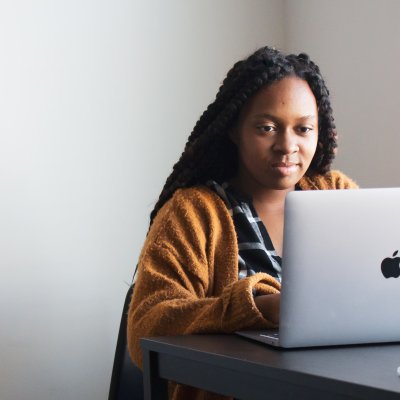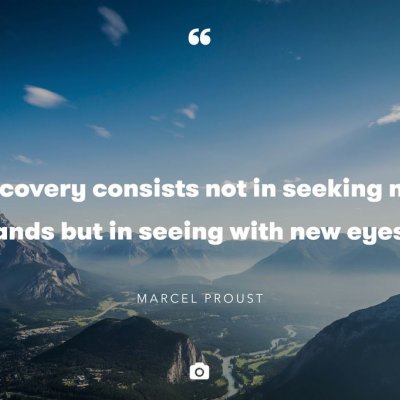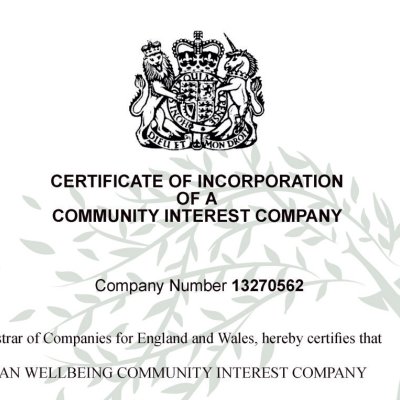How concerned are you about climate change and environmental decline? On a scale of one to 10, with 10 being the ‘most concerned’ and one being ‘not concerned at all’, where would you score? And on a scale of one to 10, with 10 being ‘all the time’ and one being ‘never’, how often do you have conversations about it, whether initiated by you or not?
I presented these questions in a digital poll at a recent webinar I was hosting on climate change and environmental decline, and how we might engage with it personally and professionally as counsellors, coach-therapists and psychotherapists. When everyone had finished answering, I shared the results on screen.
On the first question, 22% scored between nine and 10 (very high concern), 65% scored seven/eight, 13% scored between four and six. No one scored three or below. On the second, 62% scored between one and three (never/rarely/occasionally talk about it), 31% scored four/five, 5% scored six/seven and 2% scored eight.
When asked for reflections, one participant said, ‘It seems we’re really concerned but don’t know how to talk about it.’ Another said, ‘I’ve tried to talk with my family but they think I’m being negative, so I give up – it’s too hard.’ Others agreed – it was too hard, too big. And one said, ‘What’s the point? Nothing we can do about it anyway. We’re too late.’ Notably, no one denied climate change was real.
I have run this poll at many events for counsellors, coaches and clinical psychologists, and the responses are broadly the same, unless the group includes people who live or have family where devastating climate change is already a reality. As one such person said, ‘We don’t need to think about how we might talk about it – my family in India never had the chance to rehearse it before the worst ever floods hit us. Now it’s all we talk about.’
I’ve also asked how often it’s raised either by a client or themselves as the practitioner in a one-to-one session. Responses are usually that, if the client doesn’t mention it, they won’t either. This is understandable, given that many practitioners take a non-directive approach; however, if we agree that climate change is the greatest existential threat we face, are we colluding with clients’ denial by not bringing it into the room? It’s a genuine ethical concern for me, as it should be, I believe, for our profession as a whole.
If we agree that climate change is the greatest existential threat we face, are we colluding with clients’ denial by not bringing it into the room?
This month COP26, the United Nations Conference of the Parties on Climate Change, takes place in Glasgow. As the name suggests, it’s the 26th year of the conference, but there has been awareness – to some degree or another – of climate change and environmental destruction for decades before that. In recent years it’s been harder to ignore, with pictures of stranded polar bears and seas full of plastics. We’ve seen images of once-lush and vibrant rainforests razed to the ground by logging, people and koalas trying to escape catastrophic wildfires in Australia, and young children trying to swim for their lives in filthy floodwater in Asia. We’ve heard about the dramatic insect decline and the knock-on impact on the bird population. We’ve seen coverage of climate activism, and possibly been disrupted by it.
The seriousness of the situation has been made clear by the latest report from the United Nations’ Intergovernmental Panel on Climate Change (IPCC), which was described as ‘Code red for humanity’1 by António Guterres, UN Secretary-General. According to a recent UNICEF report,2 one billion children are at extremely high risk of the impact of climate change. Yet many of us still have a collective fantasy that it’s not that serious, or that it’s years away and science will save us.
Therapists are subject to the normal human defences, which have contributed to a lack of discourse and action on climate change for years, despite our psychological training and awareness of the complexity of emotions. In her book, Psychological Roots of the Climate Crisis: neoliberal exceptionalism and the culture of uncare,3 psychoanalyst Sally Weintrobe calls this the ‘climate bubble’, a collective psychic retreat from reality. She argues that the bubble has been kept inflated by our collusion with a ‘culture of uncare’, there to support business as usual. Now that the climate bubble is bursting and people are starting to face the tragic damage it has caused, anxiety, grief and rage are understandably on the rise.
Yasmin Kapadia, a psychotherapeutic counsellor in Brighton who works with young people, including many activists, urges counsellors to engage. ‘We cannot afford to continue hiding in the protected bubbles of our consulting rooms, carrying on with the business of counselling as usual and pretending the destruction of the world outside is not happening. There will be no therapy on a dead planet.’ Of her activist clients, she says, ‘Their eyes are wide open to the fact that their futures are affected by this. They talk about it with their friends – all the time.’4
Deep knowing and caring
Even though we may be aware it’s happening, for many in the Western world, the climate emergency still seems remote – and there is a difference between knowing and deep knowing, and between caring and deep caring. Until the summer of 2018, I had not allowed myself to deeply know or, if I am honest, deeply care. While I had lived an environmentally thoughtful life for some years, and had a foreboding sense that the world was heading for serious trouble, the enormity and extent of climate change and biodiversity loss hadn’t really sunk in. When it did, my awakening evoked (and still does) a range of emotions and feelings, including grief, heartbreak, anger, despair, guilt and strong urges to act, along with moments of euphoria when I read ‘good’ climate news, and varying degrees of hope. I have since found outlets to help to manage, and sometimes distance, my distress, including activism, intensive academic study on climate change and peer support groups. My awakening also led to me noticing more acutely what was being said about climate change in my two main professions, coaching and therapy, and what was not.
In the coaching world, there was little coverage or engagement until a small group of us issued a call to action, which resulted in the formation of the Climate Coaching Alliance (CCA)5 in 2019. It now has around 1,200 members and the formal support of 11 major coach membership bodies. CCA was inspired by the Climate Psychology Alliance,6 a collaboration with around 1,800 members, which is hosting a Climate Psychology Post-COP26 Summit this month. Ecopsychology UK7 is another pioneer in this area, and now has around 3,000 members. Recently, the British Psychological Society’s Division of Clinical Psychology appointed a new climate champion8 and the Royal College of Psychiatrists declared a ‘climate emergency’.9
So, there is action, but little that seems to be directly driven by the counselling community, despite the well-documented impact of climate change on mental health. A 2021 report by the Grantham Institute finds ‘substantial evidence that climate change has a detrimental and multifaceted impact on mental health, with significant costs to individuals, health systems and economies that are currently unaccounted for in policy and practice’.10
Hilary Prentice, an integrative psychotherapist who co-founded Ecopsychology UK, asked in a 2014 Therapy Today article, ‘How are we to come out of our trance, our denial, can we possibly address the mess we are in, without being able to see, name and describe it?’11 When I spoke to Prentice recently, she says we still show little sign of waking up and accepting what has been described as ‘the pivotal psychological reality of our time’.12 She describes presenting her work on ecopsychology and climate change to a group of therapy students and receiving a response of, ‘What on earth does this have to do with psychotherapy?’ She asks, ‘So how do we talk across that chasm?’
Psychotherapist and climate psychologist Steffi Bednarek is concerned that we aren’t reflecting more on the focus of our practice in relation to climate change. ‘If we only focus on supporting people who present with eco-anxiety and presume that we’ve already got all the tools, I think that’s short-sighted. As Naomi Klein says, “Climate change changes everything”,13 and therefore everything must change – that includes us too. James Hillman said, “We’ve had 100 years of psychotherapy, and the world is getting worse”,14 and that begs the question, how have we colluded with that?’
Lagging behind
Aside from the journal Psychotherapy and Politics International15 and the Journal of Environmental Psychology,16 which have covered these issues for some years, there have been just a few, albeit deeply thoughtful contributions to the discussion in other UK therapy publications, as far as my research shows. The October 2019 edition of the New Psychotherapist,17 the journal of UKCP, was devoted to the subject, asking ‘Is tomorrow’s world cancelled?’ So too was the August 2020 issue of the Clinical Psychology Forum, the journal of the British Psychological Society Division of Clinical Psychology.18
This is the first Therapy Today issue with a substantial climate emergency focus, although there have been several articles on the subject published over the past decade. For the most recent, in the March 2020 issue, Catherine Jackson interviewed climate therapists, academics and activists (including me), asking, ‘Is climate change something the profession needs to take on board?’19 Only one out of BACP’s 58,000 members responded to the feature by writing to the ‘Reactions’ page, and their response was to express concern that encouraging people to join Extinction Rebellion paralleled the enlisting of children and young people to their cause by some extremists. While I appreciate this reader’s concerns, I was shocked that no one responded to the core issues raised over four pages of content. I’m also struck by the lack of climate change-related conferences, training courses, CPD or supervision offerings advertised by our profession.
My awakening evoked a range of emotions and feelings, including grief, heartbreak, anger, despair, guilt and strong urges to act
At the time of writing (September 2021), there are no formal climate emergency statements, policies or plans from the main UK therapeutic professional bodies. But other professions, professional bodies and institutions are speaking out and acting. Doctors, nurses and pharmacists and health, social care and social institutions (including NHS England, NHS trusts and local governments) have either declared climate and ecological emergencies, or issued statements. Professional bodies for architects, the construction industry and lawyers have done the same, and thousands of businesses have signed up to Race to Zero,20 a global UN campaign to rally leadership and support to reduce emissions and create a sustainable future.
So why are we not rallying and building our knowledge, trainings and support structures in response to what lies ahead? Why are counselling and psychotherapy professions still lagging behind on this?
Collective anxiety
Caroline Hickman, psychotherapist, climate psychology therapist and researcher, says there is still anxiety and uncertainty about how to professionally integrate the impact of climate change into therapeutic work. ‘A lot of counselling is very much focused on the personal, whereas this is something existential, environmental and collective – and we don’t always know how to move between those spaces, how to bring it into the consulting room, or how to take our practice out of the consulting room. I think a lot of it comes from a personal anxiety and collective anxiety that we don’t want to face.’
But the need is clearly out there – therapists, including me and Hickman, who express an interest in this area report having a steady stream of clients presenting with climate anxiety. According to a BACP/YouGov survey,21 55% of people feel that climate change has impacted on their wellbeing to some degree, with 8% saying it has impacted to a great extent, while 30% are worried about how their life will be affected and 58% worry about what the world will be like for future generations. Those aged between 16 and 34 were most likely to say their mental health had been affected by climate change.
A recent survey of 10,000 people aged 16-25, across 10 countries, led by Hickman at the University of Bath, found that 60% of young people said they felt very worried or extremely worried. Two-thirds reported feeling sad, afraid and anxious, and four out of 10 said they felt betrayed, ignored and abandoned by politicians and adults.22
The type of work many of us do may play a part in how we engage. Where our work is largely one-to-one in a traditional therapy setting, our focus is on personal, individual stories rather than the wider systems that govern our lives. Unless we work directly with nature, or alongside business or community leaders, or with those on the front line of climate change – activists, international development and disaster recovery workers, climate teachers, journalists – we may simply struggle to hold environmental issues in mind when working.
But more of us are realising that we can’t address social justice and ignore climate change. Says Yasmin Kapadia, ‘I am mixed race with immigrant parents who came from collectivist cultures that were not individually based in this kind of Western model. Social justice, alternative perspectives and wider perspectives on the issues that people bring were always going to be part of what I brought to the work. And my environmental concerns date back many years – I think the realities of the climate crisis for people of colour are so much closer to hand and so much easier to touch.’
Dr Paul Maiteny, ecologist, anthropologist, transpersonal psychotherapist and independent researcher, says the key question for us as a profession is not simply, ‘Why aren’t we talking about it?’ but ‘Why aren’t we more interested in the psychocultural and psychospiritual causes and consequences of ecologically destructive human behaviour?’
Pandora’s box
Perhaps for some there’s an unconscious fear of, ‘What will I do if a client opens their Pandora’s box about climate change when mine is still shut?’ And when we do open ourselves to this, we open ourselves to heartbreak. Usually, we strive to separate our personal fears from our professional lives so that we can contain a client’s anxieties and allow their story to emerge. Just as we have experienced during the COVID-19 pandemic, we have to find a way to remain detached if a client expresses feeling helpless, powerless and fearful for their family now or for future generations because of climate change, even though this is a shared threat and may resonate deeply with our own fears.
This splitting may reflect a deeper disconnect, one identified by counsellor Rhonda Brandrick: ‘How did we get here, to the possible near-extinction of our own species, to the death of so many others? As I type, the climate is changing. Fires are raging. Amazing plants and animals are disappearing, and I cannot afford not to ask how I can best support people at this time in our current unfolding... Maybe the split from our natural selves, from the loss of initiation and rites of passages, and the pull away from the inscendent psychospiritual journey into the upper transcendent journey, has meant that we have lost our roots, our sense of place and belonging to an earth community.’23
I would like to leave you with some questions:
- What new practices will we need to work safely and effectively with our clients on issues of climate change?
- How do we want our professional bodies to respond and support us?
- What do we want from training institutions and CPD providers?
- What can we learn from mental health and allied professionals from around the globe who have been dealing with this for years?
- What alliances can we form with other mental health professionals?
- What work do we need to do on ourselves, both now and as an ongoing self-care practice?
- How might our profession need to evolve or even transform in the light of what lies ahead?
- How might you contribute? What can you bring to this?










